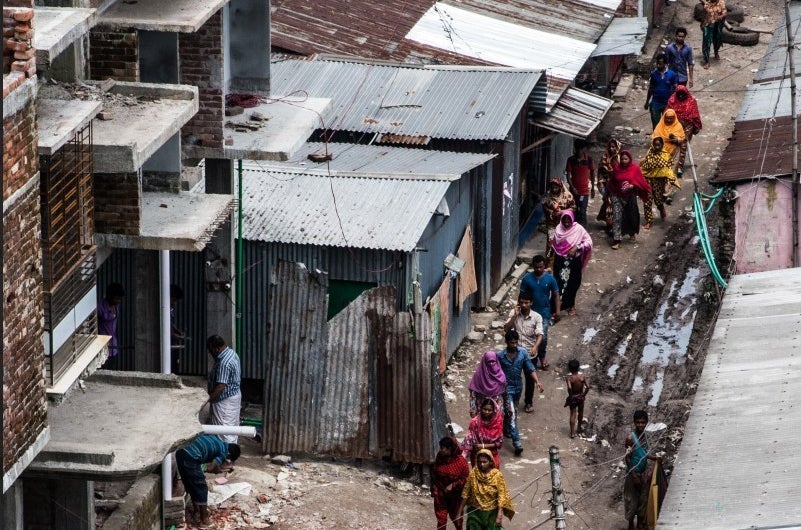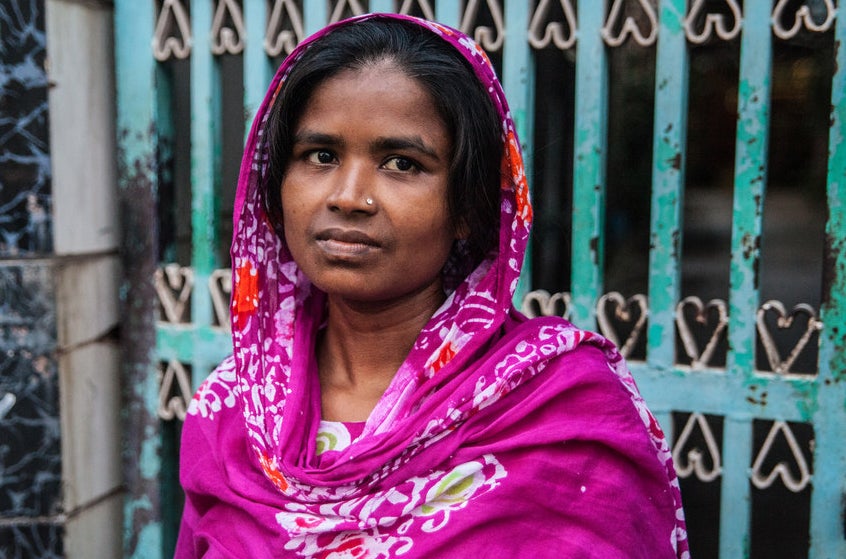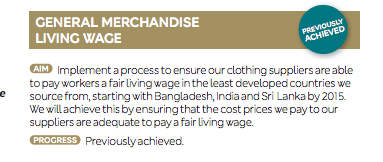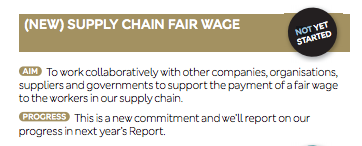

M&S and H&M are failing to ensure overseas suppliers are paying a living wage, a campaign group has claimed.
Labour Behind the Label (LBL) said in a report today that factory workers making clothes for both businesses were living in "abject poverty" in some cases.
The report found that in factories manufacturing clothing for H&M, workers were skipping breaks in order to increase their productivity after a rate system was introduced.
The retailer has committed to paying garment workers a fair living wage by 2018, a goal it set out in 2013, but the report accuses H&M of benefiting from marketing itself as an "ethical" brand without first ensuring those making its clothes are not living in poverty.

The report was also critical of M&S, which said in its 2015 sustainability report it had successfully established a framework to ensure factories in India, Sri Lanka, and Bangladesh were being paid enough to give employees a living wage.
But the investigation by LBL claims to have found workers living in cramped conditions, sometimes without access to running water, and being paid just over £3 a day for shifts that sometimes lasted 12 hours.
M&S told BuzzFeed News the original pledge did not claim the savings were being passed on to workers but said it was working to encourage suppliers to do so.
Because it is not the only brand using the factories in a complex supply chain it could not dictate how much was paid, a spokeswoman said. But M&S has pledged to work collaboratively with other businesses and suppliers to "support the payment of a fair wage".


LBL accused the business of using a "clever corporate sleight of hand" and slammed it as "poor excuse".
"If you're going to make a commitment that will get you credit in the public space they should follow through," report author and head of policy at LBL Anna McMullen told BuzzFeed News.
"I know from working with workers and suppliers that the suppliers are worried about what brands think. They could use their contracts in a stronger way and be more firm," she added.
"As brands that profit from consumers buying their 'ethical' credentials, it is vital that M&S and H&M step up to these ideals and follow through with ensuring a living wage is paid to all the workers making their clothes."
A spokesperson for M&S said: "We are committed to further improving working conditions in our clothing supply chain and our work since 2010 has made a significant difference. For example, average wages at our supplier factories in Bangladesh are now 60% above the current minimum wage.
"There's always more to be done due to the complex nature of the clothing supply chain and we cannot determine the wages paid to supplier employees. However, we are committed to ensuring our cost prices remain high enough to pay a fair living wage, training workers in financial literacy and worker rights, and playing our part in collaborating with other brands and governments to improve the sector."
A spokesperson for H&M acknowledged that the report raised "important issues" that the business was addressing. She defended the business as having "one of the highest sustainability standards in the textile industry" and said it had a history of working to improve workers' rights and conditions.
She said H&M was "humble about the challenge of long-term change for all the people who make H&M's products" but stressed raising wages in the textile industry was a "shared responsibility" involving multiple stakeholders.
"We are confident that our presence in Cambodia and other producing countries has a positive effect. By being present in the production countries, reach agreements together with manufacturers and evaluate our own part, we can slowly but surely contribute to lasting improvements," she added.
"Our goal is for all employees in the textile industry to earn a fair living wage, however; development takes time. We want to further accelerate our work, but we must be patient since it is a complex issue that affects not only the suppliers we work with, but also other actors."
